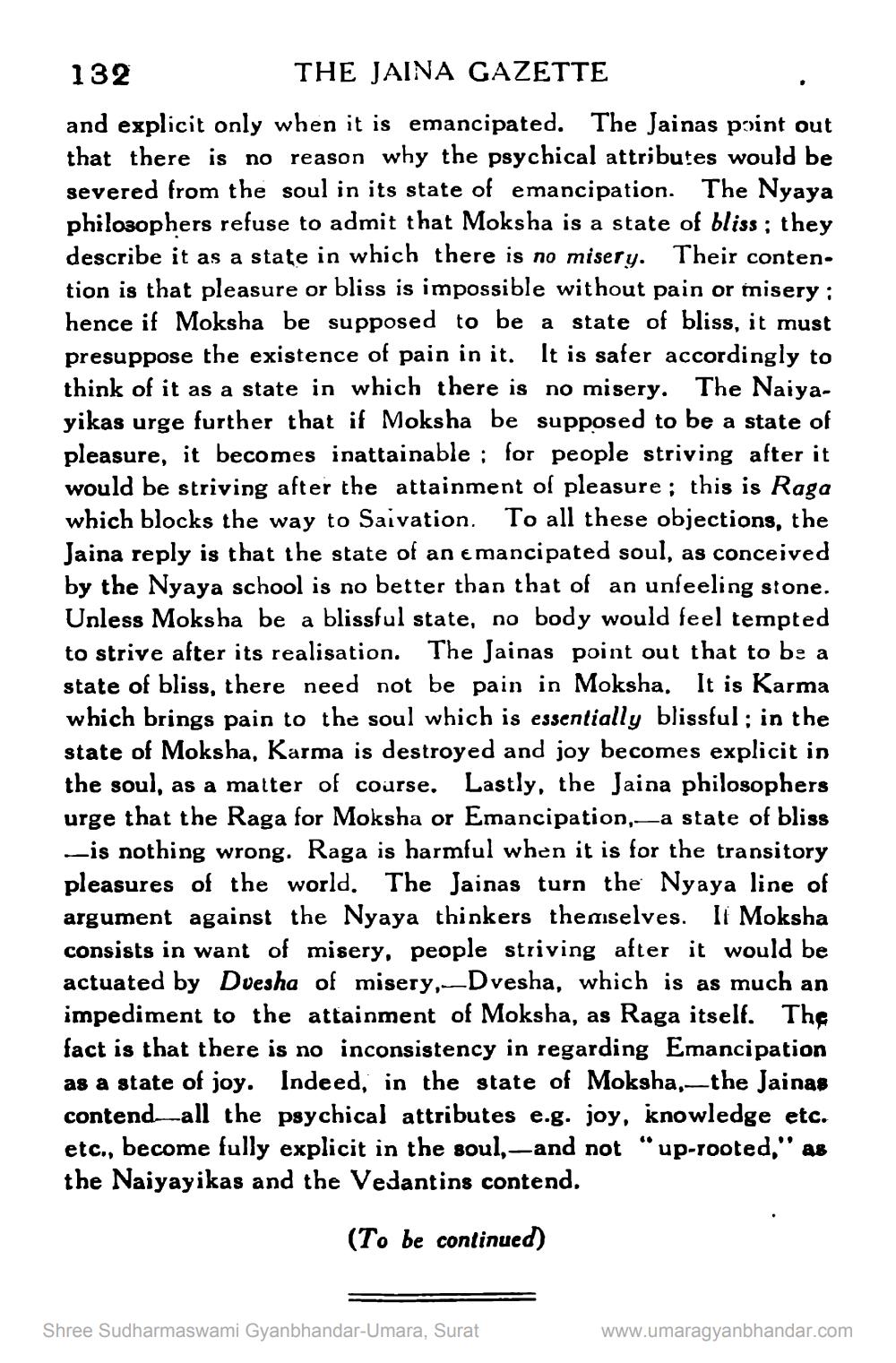________________
132
THE JAINA GAZETTE
and explicit only when it is emancipated. The Jainas point out that there is no reason why the psychical attributes would be severed from the soul in its state of emancipation. The Nyaya philosophers refuse to admit that Moksha is a state of bliss; they describe it as a state in which there is no misery. Their contention is that pleasure or bliss is impossible without pain or misery: hence if Moksha be supposed to be a state of bliss, it must presuppose the existence of pain in it. It is safer accordingly to think of it as a state in which there is no misery. The Naiyayikas urge further that if Moksha be supposed to be a state of pleasure, it becomes inattainable; for people striving after it would be striving after the attainment of pleasure; this is Raga which blocks the way to Saivation. To all these objections, the Jaina reply is that the state of an emancipated soul, as conceived by the Nyaya school is no better than that of an unfeeling stone. Unless Moksha be a blissful state, no body would feel tempted to strive after its realisation. The Jainas point out that to be a state of bliss, there need not be pain in Moksha. It is Karma which brings pain to the soul which is essentially blissful; in the state of Moksha, Karma is destroyed and joy becomes explicit in the soul, as a matter of course. Lastly, the Jaina philosophers urge that the Raga for Moksha or Emancipation, a state of bliss -is nothing wrong. Raga is harmful when it is for the transitory pleasures of the world. The Jainas turn the Nyaya line of argument against the Nyaya thinkers themselves. It Moksha consists in want of misery, people striving after it would be actuated by Dvesha of misery,-Dvesha, which is as much an impediment to the attainment of Moksha, as Raga itself. The fact is that there is no inconsistency in regarding Emancipation as a state of joy. Indeed, in the state of Moksha, the Jainas contend all the psychical attributes e.g. joy, knowledge etc. etc., become fully explicit in the soul,-and not 'up-rooted," as the Naiyayikas and the Vedantins contend.
(To be continued)
Shree Sudharmaswami Gyanbhandar-Umara, Surat
www.umaragyanbhandar.com




